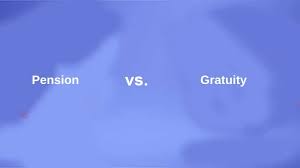It’s important to have enough money after you retire so that you can keep living the way you always have. If you haven’t planned for your retirement with the right investment schemes, you will find it hard to live on the money you have.
Some programs allow the employee to make some payments to the company, but most are paid for entirely by the company when the employee retires. Pension and gratuity are two other benefits of retirement. Here are the key differences between them.
Gratuity
Gratuity is the amount of money an employee gets as a thank you for the work he or she has done for the company.
● In this plan, the employee gets a one-time payment based on the number of years they worked for the company and the amount of their last paycheck.
● After working for the company for at least five years, an employee can get a bonus. The amount will be paid out if the job ends because of retirement, quitting, death, or being unable to work because of an injury or illness.
● If an employee dies or gets hurt because of an accident or sickness, the 5 years of service do not count. The following formula is used to figure out the tip: Gratuity Amount = (15 times the last salary drawn times the number of years worked)/26 Use the gratuity calculators online to calculate your gratuity and tip calculator to figure out how much you should tip.
● A tax on tips The maximum amount of gratuity went up after the Centre approved a new change. It is now tax-free up to Rs 20 lakh, up from Rs 10 lakh before. This is because of Section 10(10) of the Income Tax Act.
Pension
It is a service that an employer, which could be a government agency or any other business, gives to a former worker or his dependents for life. A pension is a plan in which the company adds a certain amount over the years of employment.
● When a person retires, they get a pension, which is a set amount of money paid to them over time. Employers who have worked for the same company for at least 10 years will be able to get pension benefits.
● It’s a type of retirement plan that guarantees a certain amount of money every month after a person stops working. A pension is paid out when an employee retires, dies, or gets hurt.
● Tax on Retirement According to the Income Tax Act of 1961, an uncommuted pension is treated as a salary and is therefore taxed. When an employee gets their pension in one lump sum, it is called a commuted pension. When they get their pension every year, it is called an uncommuted pension.
Concluion
This was in brief about the difference between gratuity and pension. If you take out your retirement savings now, you will lose the principal and the interest. You may also lose tax breaks or have to pay withdrawal fees. So, it’s best not to touch the money you’ve set aside for retirement. You can even use epf calculator 2022 to know your retirement money beforehand.
Any worker who has worked for a long time for the company and the economy of the country needs to be paid. This is why they should be able to get retirement money so they can stay self-sufficient and independent in other ways.
